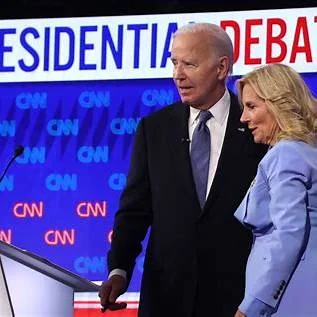In the wake of former President Joe Biden’s recent diagnosis of advanced prostate cancer, political discourse has intensified, with allegations emerging against former First Lady Jill Biden.
Leo Terrell, a senior counselor to the Assistant Attorney General for Civil Rights, publicly suggested that Jill Biden should face criminal charges for “elder abuse,” asserting that she was aware of her husband’s declining health yet encouraged his continued political engagement.

Terrell’s assertions, made via social media, have sparked a broader conversation about the responsibilities of family members in safeguarding the well-being of aging public figures.
He emphasized the gravity of the situation by stating, “Elder abuse! Criminal charges??” in response to claims that Jill Biden prioritized political ambitions over her husband’s health.
These allegations have been echoed by other public figures. Sally Quinn, a veteran journalist and Washington insider, criticized Jill Biden for not discouraging her husband’s re-election bid, describing her actions as a “terrible disservice to the country” and labeling them as “elder abuse”.
Medical professionals have also weighed in on the matter. Dr. Elaine Healy, a geriatric specialist, expressed concerns about potential elder abuse, highlighting the severity of President Biden’s health issues and questioning the oversight provided by his close associates.
Despite the mounting criticism, there has been no official response from Jill Biden or the Biden family regarding these allegations. The situation underscores the complex interplay between personal relationships and public responsibilities, especially concerning the health and autonomy of aging leaders.
As discussions continue, the broader implications for elder care, political transparency, and the ethical considerations of leadership succession remain at the forefront of public discourse.


